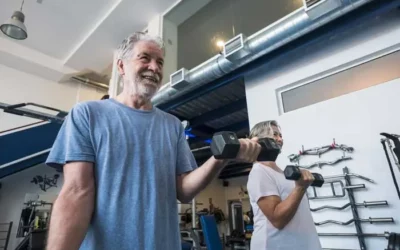Physiotherapy is a multi-faceted profession whose aim is to encourage and support the return to normal following illness, surgery, disease or trauma. This is often described as ‘rehabilitation’. So whether your problem is a sprained ankle, back pain, a stroke, chest problems, women’s health, injury at work or many other different conditions, there will be a physiotherapist to help you get better.
- Physiotherapy organisations
- Training
- What do physiotherapists do?
- What to expect when you visit a Chartered Physiotherapist in Private Practice
Physiotherapy Organisations
Physio First
Physio First is the Organisation of Chartered Physiotherapists in Private Practice it is an occupational group of the Chartered Society of Physiotherapy and as such is formally recognised by the Council of the Chartered Society as representing the interests of its self-employed members. Physio First has approximately 4000 members.
The Health Professions Council
The Health Professions Council is the regulatory body for many health professions. Under current law only qualified people Registered with The Health Professions Council as Physiotherapists are allowed to use the title of ‘Physiotherapist’. It is therefore important to establish that you choose a Physiotherapist who is HPC Registered. You can do this by viewing the HPC Register at www.hpcheck.org All Physio First members are HPC Registered
The Chartered Society of Physiotherapy (CSP)
The Chartered Society of Physiotherapy is the professional , educational and trade union body of the UK’s 47,000 Chartered Physiotherapists, physiotherapy students and assistants. All Physio First Members are members of the The Chartered Society of Physiotherapy and will probably have one of the following after their name MCSP Member of the Chartered Society of Physiotherapy FCSP Fellow of the Chartered Society of Physiotherapy All Chartered Physiotherapists are bound by the Society’s Rules of Professional Conduct and Standards of Physiotherapy Practice in addition to the Health Professions Council’s Standards, regardless of whether they work within the public or private sector.
At Optimal physio we are registered with all the Physiotherapy organisations.
Training
Chartered Physiotherapists study full-time for three or four years in University. During this time they complete over 1,000 hours of clinical practice in a number of different specialities. It is possible to train in part-time programmes however this is less common. After this initial period of training a physiotherapist is most likely to work within a general hospital within the NHS to gain experience. They then may choose to work in private practice. Just like we have done.
What do Chartered Physiotherapists do?
Chartered Physiotherapists are involved in a huge range of care. Common complaints treated by Chartered Physiotherapists include:
- Spinal problems – including prolapsed discs, degeneration, sciatica, lumbago, stiff/painful neck and referred arm and leg pains
- Joint problems – arthritis, injury, pain and swelling, stiffness in joints
- Injuries – to muscles ligaments, cartilage and tendons. Work related conditions such as repetitive strain injury (RSI) and sports injuries
- After surgery – rehabilitation after orthopaedic surgery e.g.. hip and knee replacements or general physiotherapy after general surgery
- Fractures – treatment to increase the healing rate and gain full function once the bones have healed
- Abdominal problems – such as spastic colon, colitis and irritable bowel syndrome
- Gynaecological conditions – including stress incontinence, salpingitis and post-surgery rehabilitation
- Obstetrics – including ante and post-natal classes/exercise/relaxation/advice and treatment for backpain during pregnancy
- Chest conditions – both medical and surgical including hayfever, asthma and sinusitis, pneumonia, cystic fibrosis, emphysema, bronchitis and bronchiectasis
- Neurological conditions – such as strokes, head injuries, nerve injuries, multiple sclerosis, shingles, cerebral palsy and ME
- Paediatrics – for childhood conditions including postural and walking problems
Physiotherapists will not only treat the problem but by spending time with the patient will often be able to show the patient how to minimise the impact of their problem and to help prevent the problem happening again.
Physiotherapists use a number of different techniques including manipulation and mobilisation, massage, hydrotherapy, exercise programmes, electrotherapy (eg. ultrasound) and in some cases acupuncture. Reassurance and education about a problem also gives patients the confidence to get back to normal activities quickly.
At Optimal Physio all our physiotherapists treat all of the above conditions with the exception of abdominal, obstetrics, chest conditions, neurological and chest conditions. We would prefer our clients to see a specialist and are happy to help refer to to an appropriate clinic.
We specialise in sports injuries and low back pain but are experienced treated most types of injuries.
What to expect when you visit a Chartered Physiotherapist in Private Practice
The Physiotherapists will first take a detailed history of your condition together with any relevant past medical history.
A physical assessment will then be undertaken to determine the clinical diagnosis of your problem. The physiotherapist will discuss with you a proposed treatment plan and will give you an estimate as to the length of treatment required and the proposed outcome of your treatment.
The initial assessment will probably last up to one hour and subsequent treatment sessions will last between thirty and forty-five minutes approximately.
Every opportunity will be given to you to ask questions about your condition and advice regarding its management and prevention in the future.



0 Comments